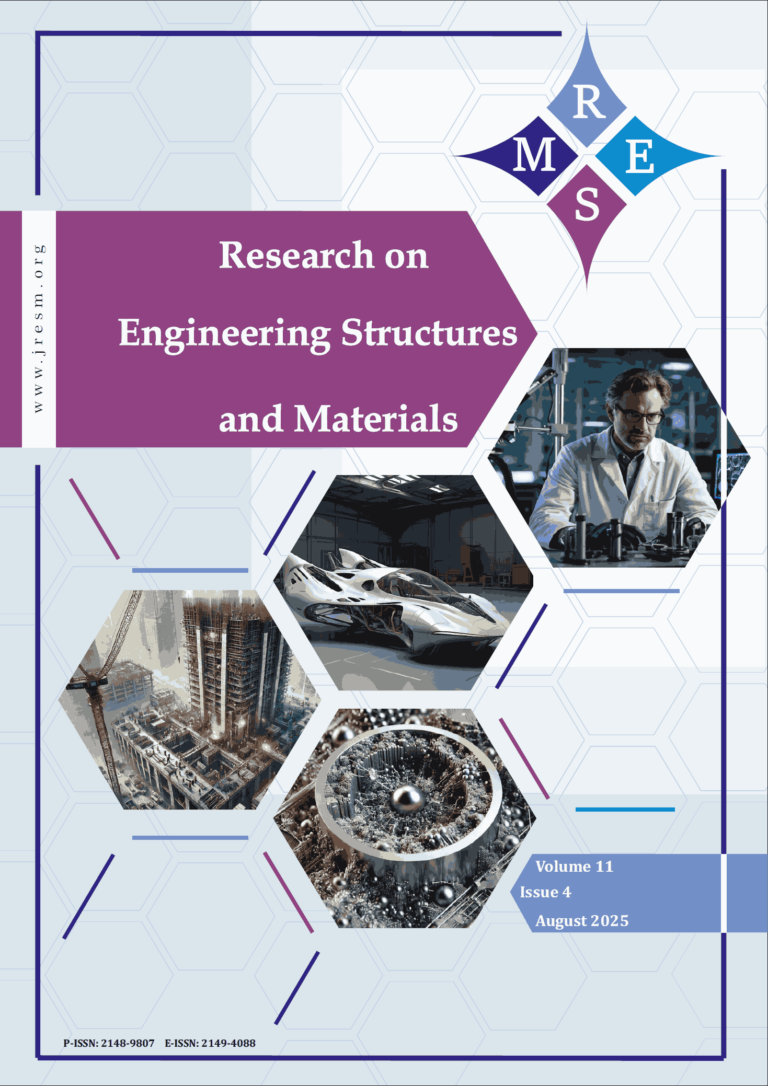Optimizing concrete strength through pozzolan variation, heat treatment, and alkaline solution modulation: A comprehensive study
The study aimed to assess concrete characteristics and mechanical properties by
incorporating pozzolan variations, heat treatments, and alkaline solution
molarities. It focused on identifying the optimal pozzolan addition percentage
for achieving maximum concrete strength. Specimens underwent heat
treatments at 60°C, 90°C, and exposure to alkaline solutions with molarity levels
of 6M for rice husk ash and 8M for palm shell ash (PSA). Compressive strength
testing at 28 days revealed the most optimal strength of 25.80 MPa in concrete
without heat treatment, with 10% Palm Shell Ash pozzolan addition. Nonpozzolan concrete subjected to 1 day of 90°C heat treatment exhibited a strength
of 21.99 MPa. The lowest strength observed in concrete without heat treatment,
with 15% rice husk ash, resulting in 12.50 MPa. FTIR analysis focused on the
chemical aspects of concrete, particularly changes in molecular structure due to
different parameters. Composite concrete samples incorporating rice husk ash
pozzolan and varying alkaline solution concentrations showed negligible
differences. Further analysis found that mixing concrete with 15% Palm shell ash
without heat treatment resulted in optimal compressive strength of 22.60 MPa,
highlighting PSA’s potential in increasing concrete strength. The research also
emphasized the effect of temperature on concrete strength, with non-pozzolan
concrete heated at 90°C for 1 day showing decreased strength. Comparison of
pozzolan influence revealed that Rice Husk Ash tended to reduce concrete
strength, especially at higher percentages, indicating a different response to
pozzolan types. FTIR analysis identified chemical components in Rice Husk Ash
(RHA) pozzolan concrete, laying the foundation for understanding pozzolanconcrete matrix interaction. However, further analysis needed for accurate
interpretation of FTIR results and understanding the mechanism behind
pozzolan’s influence on concrete strength.
Yusra A, Jasmi Ji, Simatupang HMP, Irwansyah I, Opirina L. Optimizing concrete strength through pozzolan variation, heat treatment, and alkaline solution modulation: A comprehensive study. Res. Eng. Struct. Mater., 2025; 11(1): 97-111.
